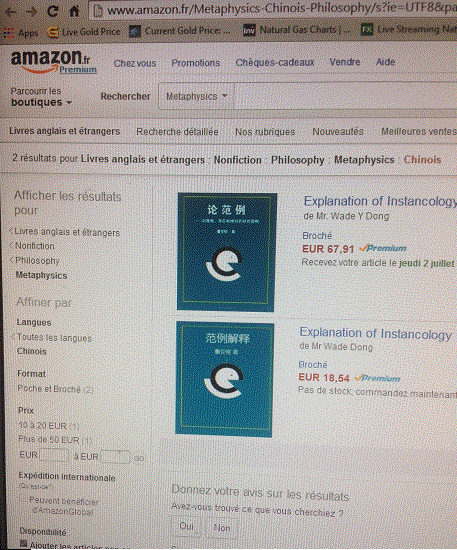The Absolutology Manifesto
The Absolutology Manifesto
I. Principle of Instance Emergence
All phenomena within time and space originate from contingency. Quantum mechanics reveals that events such as collapse, fluctuation, and emergence are not outcomes of deterministic necessity but manifestations of fundamental randomness. Where necessity appears, it does so only as an emergent pattern arising from underlying contingency.
II. Axioms of Contingent Existence
1. The universe is a contingent existence.
2. Life is a contingent existence.
3. The self is a contingent existence.
4. The self is unique. Consequently, life and the universe are also unique in kind. Repetition within spacetime is metaphysically untenable. Assertions regarding alien life or multiverse models, while speculative, lack ontological validity within the present continuum.
III. The Significance of Human Existence
The essential meaning of human existence is cognition (Chinese: 知). Knowledge, as the mode of human engagement with reality, can be systematically categorized as follows:
Physics
Mathematics
Philosophy
Absolutology
IV. The Ontological Duality
All entities may be categorized within the dual structure of the Relative and the Absolute. The relationship between these domains is exhaustively articulated through six fundamental relational forms:
1. All material and representational entities are Relative.
2. Only the human spirit (consciousness, mind) is Absolute.
3. The Relative of the Relative: all material entities connected to human activity.
4. The Absolute of the Relative: all natural entities that exist independently of human interaction.
5. The Relative of the Absolute: all cultural and intellectual productions generated by the human spirit.
6. The Absolute of the Absolute: the shared ontological source of both material and spiritual domains.
V. Rupture and the Genesis of Existence
All existence originates through the metaphysical rupture (Chinese: 塌塌) of the Absolute of the Absolute. This primordial rupture engenders contingency and, with it, the entirety of the cosmos. Even within contingency, there resides a form of relational necessity, exemplified by the mathematical regularities discerned through scientific inquiry.
Distinction, whether pertaining to individuals, collectives, or the interface between subject and world, constitutes rupture. Survival within this condition demands cooperation. Equitable cooperation fosters stability; inequitable cooperation remains transient and volatile.
VI. The Teleology of Lawfulness
Order arises not in opposition to chance but as its telos. The progressive evolution of civilization is driven by a directional tendency inherent in contingency toward emergent regularity. The Relative is attracted to the Absolute. This dynamic of attraction and resistance constitutes the gravitational pathways along which civilizations unfold.
The magnitude and configuration of these relational pathways determine the developmental stages of human societies. Thus, metaphysical architecture governs not only the ontological field but also the historical trajectory of knowledge, culture, and consciousness.
VII. The Task of Absolutology
Absolutology does not merely represent one epistemic domain among others. It marks the culmination of philosophical inquiry and inaugurates a new mode of self-understanding within the Whole. Its focus lies in the study of the irreducible instance, the unspeakable Absolute, and the relational structures underpinning all forms of existence.
The task of Absolutology is to awaken human consciousness to its singular position: not as a mere component of the Relative, nor as the originator of the Absolute, but as the unique site wherein the Relative and the Absolute are brought into convergence.
